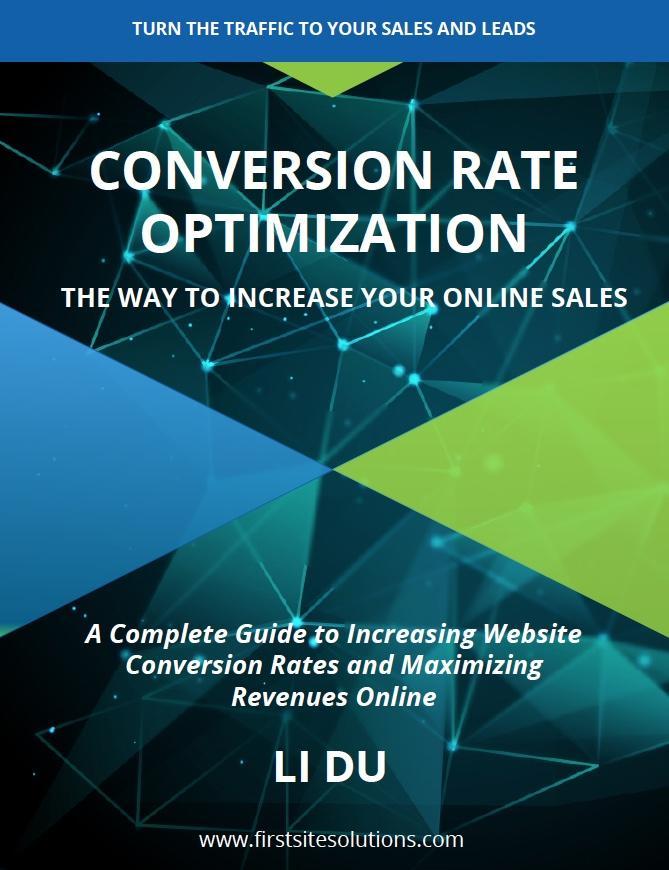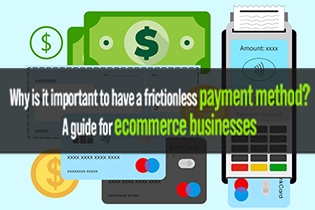
75-200 million people lost their lives during the Black Death pandemic from 1346 to 1353! The Justinian plague from 541 to 542 killed 25 million people! The influenza pandemic of 1918 to 1920 caused 20-50 million deaths, more than the people killed in the Great War!
Unlike many calamities that we define as “modern” today, pandemics are not one. Some people may believe that epidemics are just surges of a disease over a small period of time. That could not be far from the truth. One of the most recent pandemics, the HIV/AIDS pandemic, lasted for seven years (2005-2012)!
But pandemics have been a fairly regular occurrence throughout history and have taken the lives of millions globally. But the real question is: why do these global epidemics occur?
To answer the question, let’s consider an influenza pandemic. Why? Because:
- Influenza is one of the most common diseases to take the form of a global pandemic.
- The generation and spread of influenza pandemics are similar to the recent Corona Virus.
The reason for pandemics: mutation. A new subtype of virus arises, beginning from animals usually. Such a virus has not been seen previously, and human antigens do not recognize it, and no immunity therefore exists.
The disease initially spreads into small clusters of a human before it spreads across borders. That is how pandemics are formed. In the current context, we do not need to mention that they can be deadly for individuals and entire economies!
The Latest Threat: The CoVid-19
When we said the current context, we were talking about none other than the novel Corona Virus. Contrary to what people might believe, the Corona Virus wreaking havoc right now is not entirely novel. Corona is a family of viruses so-called because of the protrusions on their surface that look like crowns.
But if the virus is not new, why is it posing such a huge issue? Because this is a virus that had previously existed only in animals. When it mutated, it jumped to humans, and before we knew, it mutated again and could spread from human to human.
This mutation in the Corona Virus is so rapid that it has already come to mutate and create two different strains! This makes the process of creating a vaccine even more difficult.
It is also widely being said that the coronavirus transferred from the body of a bat to a human. However, there is no proof to substantiate that claim. What we do know for sure is that the novel coronavirus started from the wet markets of Wuhan, China.
From the first case in China sprung up on the 7th of December, what followed was a rapid outbreak that had soon spread to the whole word in a few months. The most recent statistics from March 31 report over 849,000 confirmed cases and 41,625 deaths worldwide!
The LockDown!
It has been clear that the virus was new, and no treatment existed. How to contain the virus that spread much faster than SARS and H1N1 has become a critical question. On 23rd January 2020, a lockdown was initiated in the city of Wuhan that cut the city off from all outside world. From travel restrictions to restricted movements in the town and extensive screenings, the entire Hubei Province was utterly cut off.
But while China prospered with lockdown and somehow managed to pull through, it was believed that the lockdown would have extreme repercussions for the economy. Other countries now gear for these lockdowns. The lockdowns entail a complete shutdown of businesses and a preferably partial shutdown of essential companies. But really, what does a lockdown mean?
There is no simple answer. The answer is so complicated that it can come to confuse entire nations. Some countries were so against a full-fledged lockdown that they risked the lives of millions of people.
And for what? Sooner or later, they, too, had to accept that quarantine is the only fix at this point in time until vaccination is made.
Businesses in Lock Down
When lockdown sounds like the right path to take, businesses will have to suffer when they are shut down, and people do not want to come out of their houses. Businesses that have spent years establishing a consumerist culture around the world will now have to see their productions stop when nobody is there to create that demand, and traditional brick and mortar stores shut down.
But with cases that have affected prominent figures in world politics like Justin Trudeau, Prince Charles, and Boris Johnson, businesses understand that they cannot set one foot out of line. Even more important is that all eyes are looking to see how businesses perform. They must surely deliver and show that they care.
How Businesses Should Cope
But the complete magnitude of the fix that businesses find themselves have not yet been discussed. The problem is three-fold:
- Businesses see little to no demand for their goods as individuals look to cut down spending only on necessities. In that context, FMCG industries see a spike in their demand that depletes their reserves as people try to hoard.
- Businesses have a huge burden of fixed costs in the shape of human capital that they cannot simply let go for an upcoming recession-like state.
- Businesses have another substantial fixed cost in the shape of rents and property costs that will be shut down indefinitely when lockdowns commence.
This is the time when all customers want to see how businesses react. At the same time, these individuals want to ensure that they have jobs to go back to once lockdowns end. That is exactly why there are so many eyes on the world of business at this point.
If there was one thing that the world wanted the business community to show at this point, it was empathy.
Every individual wanted these huge corporations to understand that it was a difficult time, and every employee will not only want but need that job security. In fact, several activists even came out to demand that stringent checks be maintained on organizations to ensure no employee was fired during these difficult times.
And organizations have responded brilliantly for the most part. Introducing apt work-from-home policies or granting paid leaves has been the general reaction. Businesses have succeeded in putting across the general sentiment of empathy that most people asked for and looked for in these times. They have treated their employees not as a resource, but as humans and have been appreciated.
Customers
But while organizations have succeeded in keeping their employees (and hence a segment of their customers) happy, the real concern is customers. Their employee policies have received acclaim, given that these supposedly greedy corporate entities have shown empathy.

But let’s talk about the communication phase. How do organizations manage their advisory notices, advertisements, promotions, prices, or any other interaction? Most of all, though, how do organizations leverage their digital over the phy-digital structure of their operations under lockdowns.
Here are some points to keep in mind for these communications:
1. Pitch it to Win!
The most crucial point to keep in mind that this is a difficult time. People are looking for hope to get through all this, and your sales pitch is definitely not going to help during these times.
Any business communication course will teach you that a sales pitch does not go well with messages communicating bad news. That is why every organization must keep in mind that this is the time to tread lightly. Going into a full-fledged sales pitch will make you seem inconsiderate.
The correct approach is to highlight the need for your service. No brand in your face advertisements and messages are going to cut it. Communicating that you are a responsible organization that is willing to go the extra mile to help will be enough without getting into the detail of your service.
2. Tune the Tone
The tone is an especially tricky concept when it comes to digital. Why? Largely because there is no human interaction. Where organizations would previously interact with customers and optimize these touchpoints to ensure that every customer understood what the organization stands for.
In a world where digital is the primary source of focus, the problem of tone accentuates. The problem is especially significant in dealing with textual communications like advisory notices, promotions, and prices.
Therefore, even if an organization can manage to control its sales pitch, it can still pose a considerable threat. Therefore, the words to be used in communication need to be thought out thoroughly to ensure no discrepancies arise.
3. Garner Confidence When You Can
Having mentioned the importance of tone and sales pitch in the digital world, one aspect remains an opportunity. Being called upon to be responsible for communications and understanding the implication of words does not mean that organizations should completely abandon their profit motive.
If anything else, organizations should recognize that this is an opportunity, not only to gain sales but also to gain trust. Organizations have a chance to really focus on their digital presence and grow it.
This is the time to give out promotions to ensure that the world knows about their services. If customers love your services and promotions at this point in time, there is no doubt that they will sticky by your service after the pandemic subsides.
Moreover, this is the time to master the art of marketing in the digital realm and to really convert customers, especially those that would previously shy away from digital shopping. Given no other alternative, the general audience has to rely on digital.
And if the audience is on the internet, that is where you should be!
Prominent Businesses Already Making Use
But while the “what’s and how’s” of business dealings during pandemics sound far-fetched, they really are not. Several businesses, both big and small, are employing these tactics and have come up with campaigns that have blown their customers away (or nearer to them).
Among the most prominent organizations coming up with beautiful campaigns, here are examples of some:
1. Netflix Party
Organizations with business models that function digitally have no doubt been better geared to deal with the lockdown phase. They have had the time to think about their innovation since forever and bring out more convenient options at this time that sounded like the best thing.
Among others, Netflix is one business model focusing entirely on its digital presence. Netflix understood that social isolation for people meant more and more time to kill. How to help them kill time? Of course, through their own movies and shows.
But the real question was, how to make it more of a collective experience while avoiding interaction? Voila, remote interactions.

Therefore, Netflix has come with its beautiful extension for Google Chrome titled “Netflix Party” that allows you to engage from remote locations. The best part is that Netflix does not charge you anything extra for the service and does not count extra screens.
Beautiful cause to help people during the lockdown.
2. SCRIBD
Reading always has and will always be one of the best ways to spend your time. Be it fictional or non-fictional books, and there is no pleasure like reading.
Scribd, a service offering an online reading library, understood that and came to the rescue for people. Showcasing perhaps the best display of empathy, the CEO of SCRIBD came out with a message for the global community.
A message that says that everyone can access their library for free without any credit/debit card commitments. Free access to terabytes of reading data, what more could you ask for?
3. McDonald’s
Who doesn’t know the fast-food giant: McDonald’s? And for those that know about McDonald’s also know about their innovative promotions and communication messages.
During this challenging time, McDonald’s did not fail to realize that the doctors and medical staff are no less than heroes. In fact, many nations have declared their doctors as the army fighting a war against this disease. McDonald’s has, therefore, come out to promise that their meals are on the house.
And McDonald’s has fulfilled its promise. But rather than showing off that it has, it let the world talk about that noble act. Therefore, you can see pictures of their heartfelt messages circulating on social media.
4. Coca Cola
Coca Cola, a global giant in beverages, has also taken its responsibility to raise awareness very seriously. It has come out urging people to maintain social distance as all the governments have advised.
And the way it has done so has been absolutely brilliant. This campaign has primarily been employed in areas where lockdowns have not been taken as seriously to ensure everyone understands its importance.
Coca Cola has even gone a step ahead and put out that it will be off the air for a while. In turn, all the marketing budgets will be directed towards relief efforts for people around the world.
5. The Unique Circumstances of Corona Beer
But while many businesses have come out and shown how strong they are, others have not found the circumstances to do so. While brands like Reckitt Benckiser and P&G lead in profits with their hygiene products, some brands have found their images tarnished.
Corona Beer is one such brand. The reason does not even need an explanation. It is reported that the brand has lost roughly £132 million in sales in the pandemic. And while there is definitely no relation between the virus and the brand, sales have definitely gone down.
Final Thoughts
The success of these brands lies in the fact that they have preferred awareness over their sales. No brand among these has come out with a marketing campaign that relies solely on their “sales pitch.” What has worked for them is their display of empathy for the sufferings during this pandemic.
And while pandemics come and go, the fact of the matter is that these organizations will stay. And customers will always look back to how these organizations responded during these difficult times. Even more so, they will look back to see how they treated their human workers and employees.
In the absence of a rational approach to operations and a reliance on digital aspects alone, no organization could hope to survive these difficult times!












